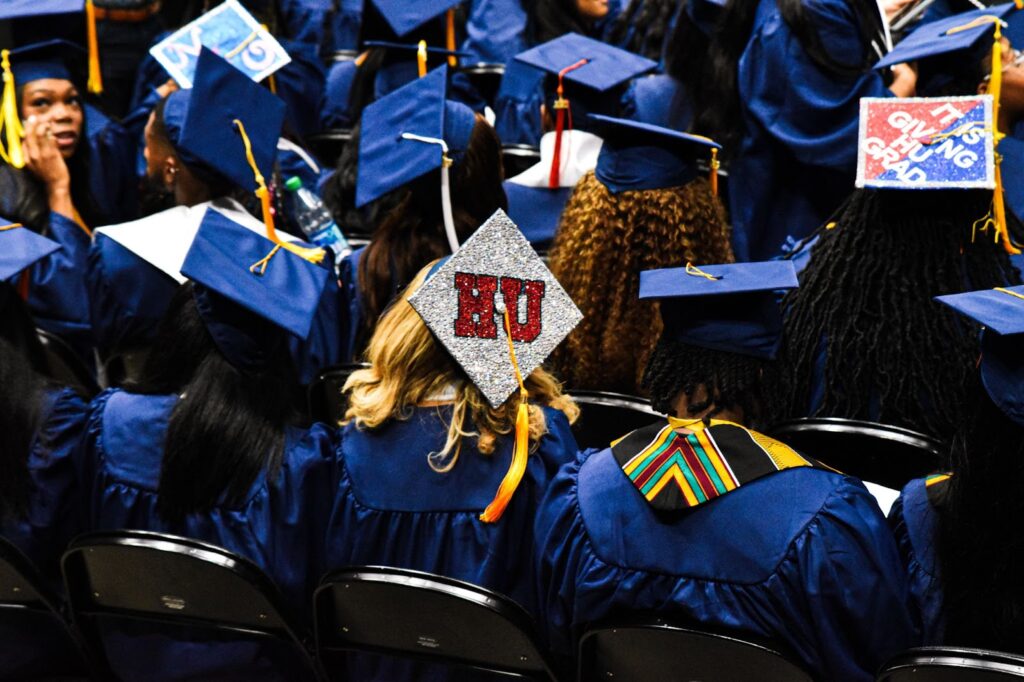
Youth unemployment has risen to its highest rate since the COVID-19 pandemic, according to the International Labour Organization (ILO). The ILO attributes the surge to a multitude of factors, including high interest rates, employers opting to hold onto older adult employees who have substantial experience and an increased cost when firing tenured workers.
According to Statista, the number of unemployed young adults between the ages of 16 and 24 has increased 2.4 percent since January, when that number was at its lowest all year.
The uptick in youth unemployment has left a number of college graduates no choice but to work part-time jobs to make ends meet.
Ricardo Julien, a 2024 Howard graduate who majored in marketing from Fort Lauderdale, Florida shed light on his life after graduating college.
“I still work a minimum wage job to pay the bills and to make sure everything is accounted for,” he said.
Julien highlighted that while many begin college with the feeling that they will leave school with a job when they graduate, some students are now finding that it isn’t that simple.
“We grew up understanding that when you get a bachelor’s degree that next in line you get a job. I feel like a bachelor’s degree doesn’t mean as much as it used to,” Julien said.
Alexander Henke, associate economics professor at Howard, explained the change in the value of a bachelor’s degree that Julien feels as “stasis going on in the market right now.”
“Employers don’t want to lay people off because they did that before and they were disciplined very harshly by a very hot labor market,” he said.
Henke said employers are holding onto their existing employees instead of rehiring so those who have a job are “actually doing okay.”
Studies from the Federal Reserve Bank of St. Louis show that recent college graduates have been hit the hardest by these changes in the market.
Cydney Dean, who also graduated in 2024 as an economics major and is now back in Brooklyn, New York, and was able to secure a job but has seen many of her peers run into similar obstacles when looking for work.
“I think for a lot of my friends in general, it’s just a struggle, even if you have internships and things like that, a lot of times they just don’t have anything to offer you, because they fall in a hard time, so [employers] don’t even know if their own jobs are safe,” she said.
Dean believes that these issues might be a result of the qualifications necessary for many entry-level positions.
“Even when you look for jobs and they are entry-level, and you’re like, ‘Oh, this is a good opportunity for me.’ You look at the descriptions, and you look at everything they expect, and you’re like, ‘this says entry-level,’ but you need all these skills and all this experience that you don’t have,” she said.
Even after securing entry-level opportunities, Burning Glass Technologies and the Schultz Family Foundation report that 48 percent of young workers have struggled to move up the corporate ladder, staying in entry-level positions five years after they begin working.
Nate McGill, associate director at the Center for Career and Professional Success at Howard, believes that students can bolster their chances of employment post-graduation.
He encouraged students to take advantage of the career fairs held at universities to establish relationships with professionals and expand their knowledge of Artificial Intelligence (AI) tools that improve key components of a job application.
“The main thing I want to express to students when it comes to AI and career search is the Automated Tracking System,” McGill said.
He explained that learning how to navigate this system sets students apart when applying for jobs.
“When students apply to big companies, the AI system sees buzz words that they like or don’t like. If they like it then the recruiter looks at it and those are the applications that are sent to the interview process. So, try beating the system by using words in the job description and relate them to your resume,” McGill said.
Dean also provided some advice to students looking for opportunities.
“I would say exhaust all of your connections. You’d be surprised who, not just what your connections might have available for you but who they might know,” she said. “It can seem really overwhelming, but a lot of the time those people are just trying to help.”
She explained the importance of patience throughout the process.
“I know there’s this idea that ‘I need a job by graduation’ or a lot of people have jobs before senior year starts and stuff, but I think putting that pressure on yourself can make things worse,” Dean said.
Copy edited by Camiryn Stepteau
































